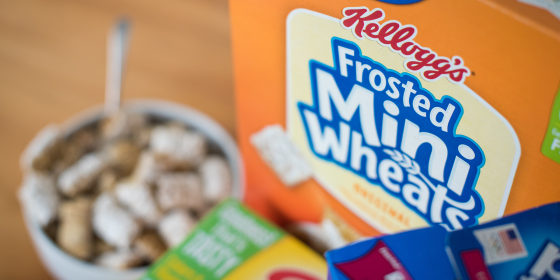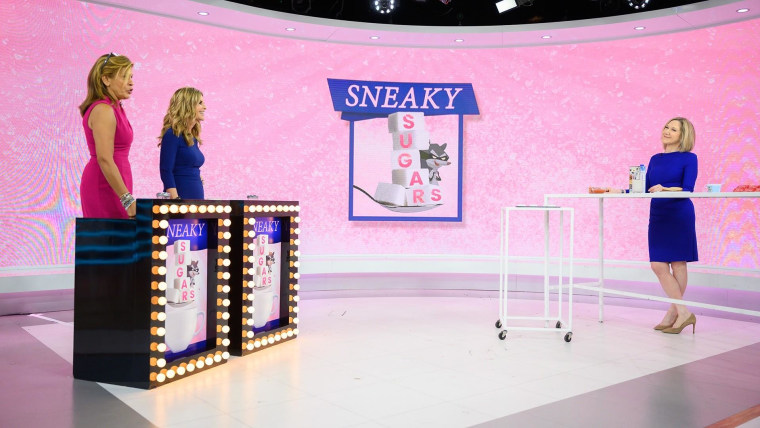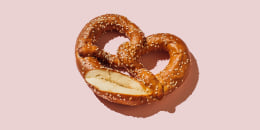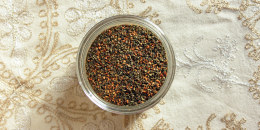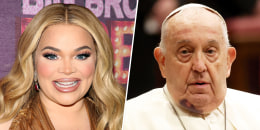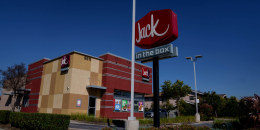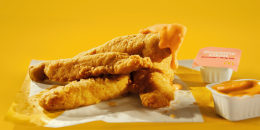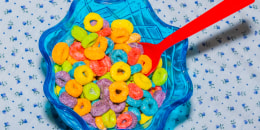Sugary cereals may not actually be a healthy start to the morning, even if they do taste "gr-r-reat." And the Kellogg Company has agreed to stop marketing those products as such.
In a lawsuit filed against the popular food company in May 2019, a group of people in New York and California asked, if Kellogg's breakfast products contain significant amounts of added sugar, why are they labeled as "healthy," "wholesome" or "nutritious"?
The case first began in 2016, filed by California resident Stephen Hadley, who then combined his case with one filed by four plantiffs in New York. On Monday, New Food Economy reported, the Kellogg Company settled with plaintiffs before going to trial — agreeing to remove such terms purporting health benefits (words like "nutritious" or "healthy" can still be used to describe a specific ingredient such as wheat). The settlement also includes a total payout of $20 million to people who claim to be affected by the false advertising, including vouchers of up to $20 for customers who purchased the cereals since Aug. 29, 2012.
So, which Kellogg's products are affected by the suit?
Five flavors and variations of Raisin Bran, 16 types of Frosted Mini-Wheats, Smart Start cereals and 24 types of Nutri-Grain bars.
The court document suing Kellogg contained a hearty 136 pages of evidence berating the company for marketing itself as, well, hearty when the breakfast lineup contains some not-so-heart-healthy amounts of sugar.
"The scientific evidence is compelling: Excessive consumption of added sugar is toxic to the human body," it reads. "Experimentally sound, peer-reviewed studies and meta-analyses convincingly show that consuming excessive added sugar — any amount above approximately 5% of daily caloric intake — greatly increases the risk of heart disease, diabetes, liver disease, and a wide variety of other chronic morbidity."
According to the American Heart Association, women should only consume six teaspoons of sugar per day and men a maximum of nine. According to NBC health and wellness editor Madelyn Fernstrom, an easy way to check labels is to divide the amount of grams by four.
One cup of Raisin Bran Crunch, the box of which is marketed with a big red heart and the words "heart healthy" in all caps, has 19 grams of sugar without milk (13 grams are added sugars) — nearly 5 of the 6 teaspoons of the recommended daily sugar limit for women. Add a 3/4 cup of skim milk and you're looking at 29 grams (or 7 teaspoons) of sugar before the day even starts.
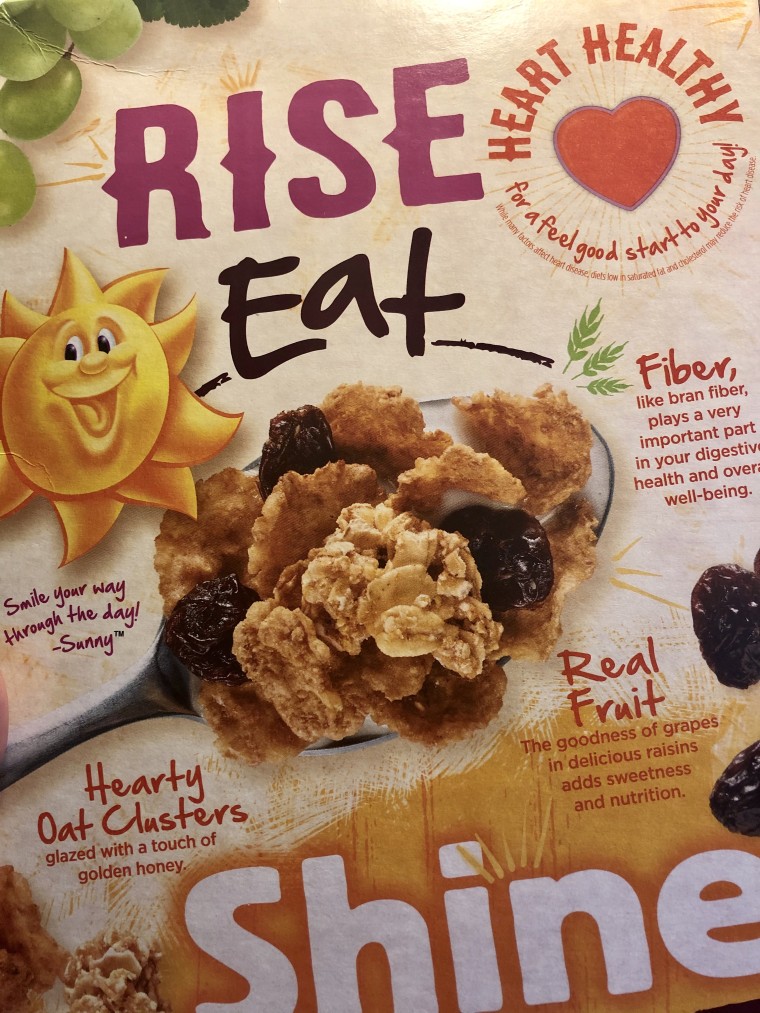
It's become increasingly clear how some companies mislead consumers' growing interest in prioritizing health. On Wednesday, the Washington Post reported research that showed how brands use packaging designs to portray a "healthier" look — including thin containers, images of nature, pale or muted colors, natural brown paper packaging and using images of nature, farms, grains and produce — no matter the contents.
Let's face it: Reading nutrition labels and ingredients may be more important than ever.
